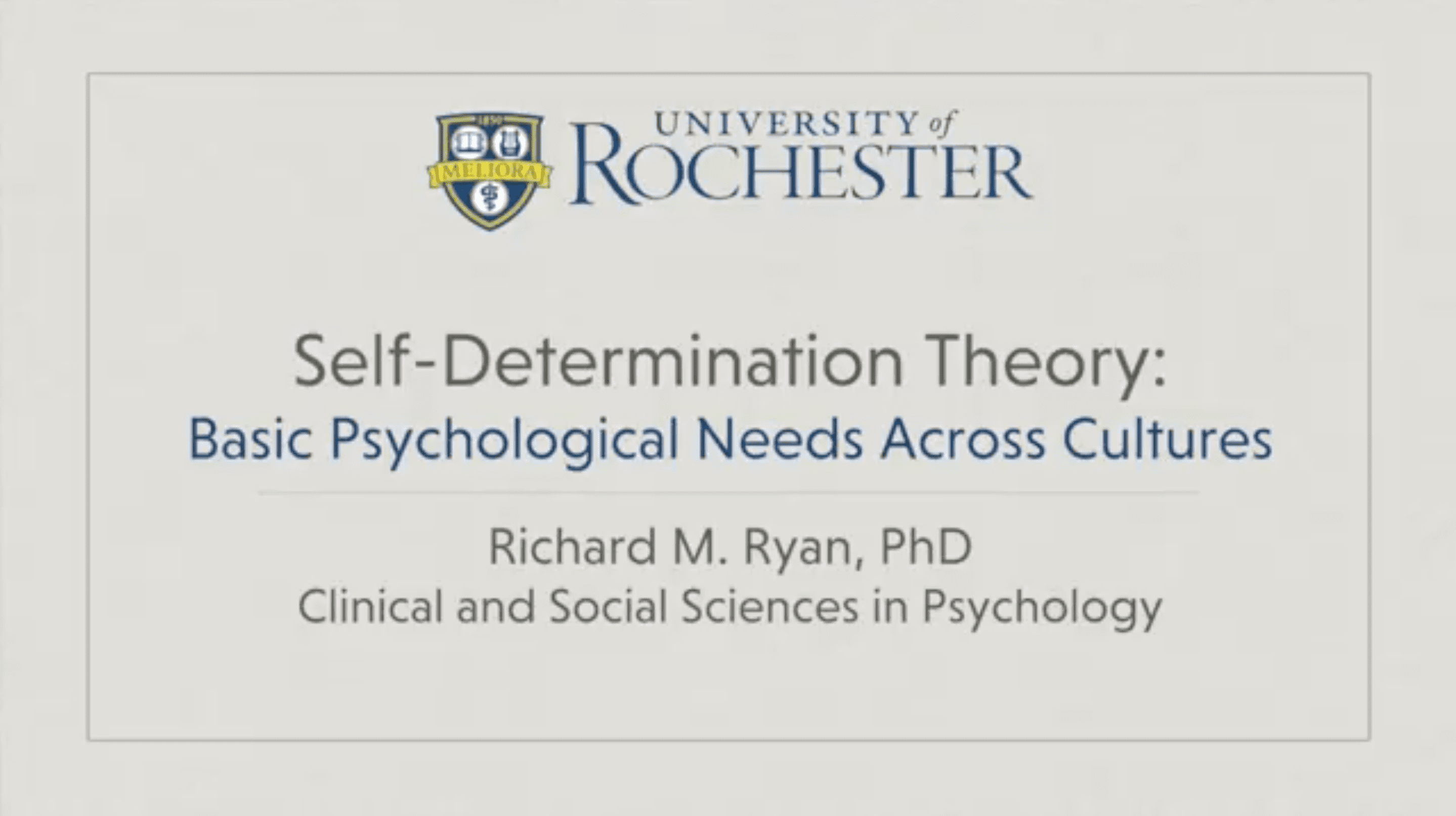Culture represents one of the most pervasive influences on behavior that individuals can receive. Culture incorporates perceptions, motives, values, aspirations, and other aspects that are key elements of socialization that are transmitted from generation to generation.
Self Determination Theory (SDT) states that there is an inherent human tendency to internalize and to integrate social practices. Despite the existence of cultural differences, SDT has proven to be a useful theoretical approach to understand how a culture transmits or conveys its regulations and values, and how a culture affects internalization. For example, when cultural elements are transmitted in more controlling or authoritarian ways, we expect less internalization, in comparison to a culture transmission with a more autonomy supportive way of internalization ensuring more stable cultural norms and practices.
Also, SDT focuses on how specific practices, values, and rituals of a culture impact basic psychological needs. SDT studies have demonstrated that across many different cultures and societies, basic need satisfaction is invariably associated with wellbeing despite the arguments of cultural relativists. These scholars correctly state that there is a lot of variability in cultural behaviors, values, and attitudes…however, SDT scholars argue that some cultural contents are not as good at supporting basic psychological needs and this produces variability in wellness across cultures. Therefore, it is useful to look at cultures in terms of how well they are supporting wellness.
To apply SDT in the study of cultures, it is important to clearly distinguish between terms. For instance, differentiating values from motives, and from needs, are important distinctions. In SDT, a need is defined as an essential nutrient for thriving and wellness across cultures. Values and motives can differ across cultures but psychological needs are considered as an etic universal, that is, a characteristic that can be empirically identified and cross-culturally validated.
Specifically, one controversial issue is that SDT argues that there is a need for autonomy that applies across cultures, irrespectively where people live. However, it is possible that autonomy manifests different across cultures, but remains essential to well-being. There are many studies giving ample empirical evidence regarding this.
In fact, an early study by Chirkov, Ryan, Kim & Kaplan (2003) demonstrated that autonomy and well-being were associated despite more specific cultural orientations (individualism-collectivism) in the US, Turkey, Russia, and South Korea. A more recent study by Chen et al., (2015) performed in the US, Belgium, China, and Peru, demonstrated that the association between need satisfaction and well-being was comparable across countries. Moreover, even if people said that autonomy was not important to them, not satisfying their autonomy had a negative impact on their well-being.
There are many other studies giving empirical evidence that support the idea that autonomy support and basic need satisfaction is associated with well-being regardless of cultural contexts. There is a lot of variation across cultures but there are basic human elements that apply across cultures. SDT states that all cultures do better when they find ways to support the basic psychological needs of their people.


